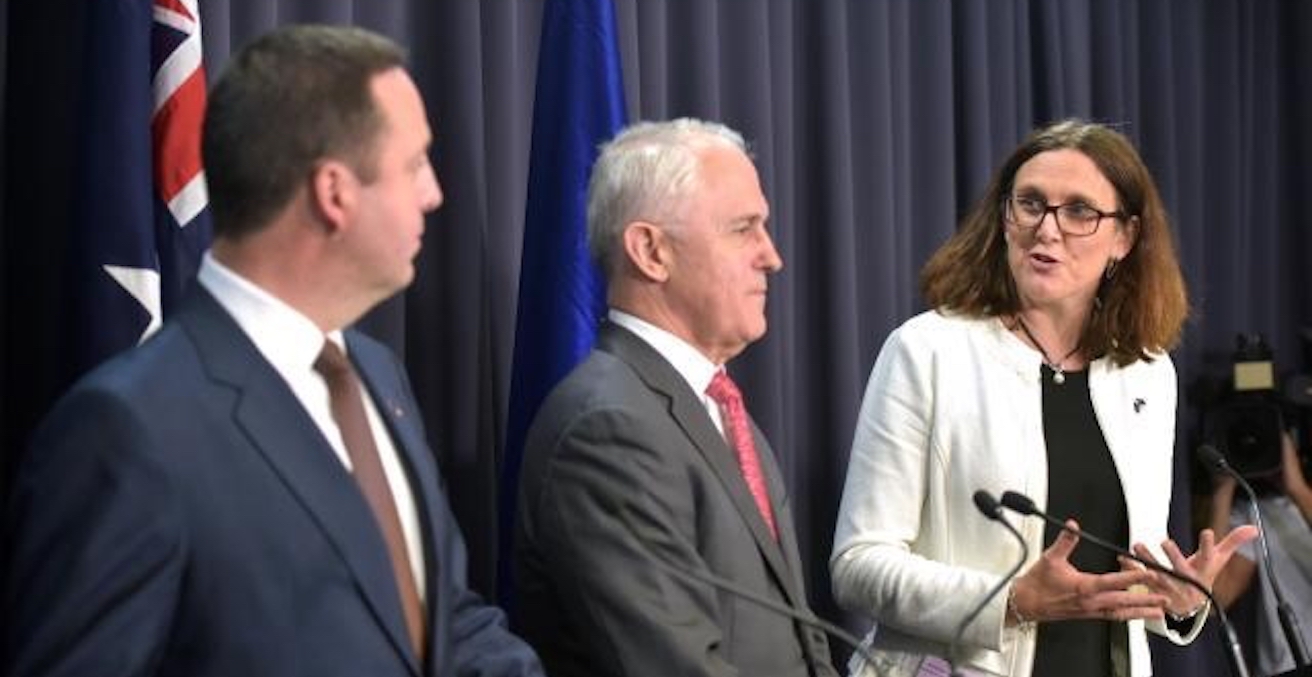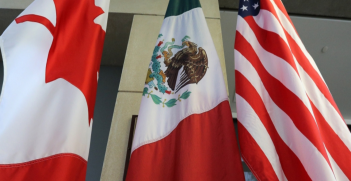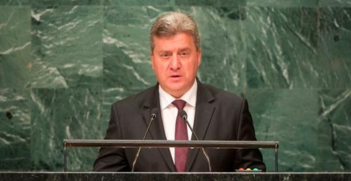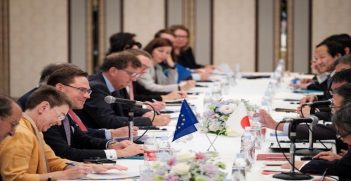EU-Australia FTA: Negotiating a Substantive and Meaningful Agreement

The recent strengthening of EU-Australia relations is set against a longer history of misaligned interests and contestation. As free trade agreement negotiations begin this week, overcoming legacies of foreign policy disinterest will be critical to making the concessions necessary for a substantive and meaningful agreement.
Despite a troubled trade history dominated by disputes over agriculture, the negotiation of a European Union–Australia free trade agreement was initiated in 2015. The initiation of these negotiations was made possible because of the shift in EU trade policy towards the negotiation of what the EU terms ‘new generation free trade agreements’. The EU has concluded FTA negotiations with South Korea, Singapore, Vietnam and Canada, and is negotiating other FTAs— notably with Japan and the USA .
The EU faces many commercial challenges to its FTA negotiations that go beyond tariff reduction, including the protection of its geographical indicators, public procurement and investor–state dispute settlement. These issues are likely to be substantial features of any EU FTA with Australia. In addition to these challenges, the promotion of sustainable development interests and human rights through FTA negotiations is an important component of the EU’s approach. The EU’s position on the trade-related aspects of sustainable development and the negotiation of human rights conditionality has presented significant challenges to the EU’s trade agenda, particularly in negotiations with Canada and Singapore.
Geographic indicators
In negotiating CETA with Canada, reaching agreement on the protection of European GIs was a major sticking point in the negotiations. Australia, like Canada, has many primary producers who employ European GIs in the labelling of their products. Furthermore, GI protection has often been perceived by Australian officials in the context of multilateral trade negotiations as agricultural protectionism by other means. Thus, there is scope for GIs to present an obstacle to any EU–Australia FTA negotiations. However, the successful negotiation of the 1994 and 2008 Agreements between Australia and the European Community on Trade in Wine renders significant disagreement on GI protection less likely.
Investor-State Dispute Settlement
Investor-State Dispute Settlement (ISDS) has increased public salience in Australian trade politics, particularly after the Philip Morris challenge to Australian plain packaging of cigarettes. It is not in Australia’s interests to negotiate intellectual property protections in agreements that extend the life of patents, because Australians are a net consumer, not an exporter of intellectual property. Historically, this position has been reflected in Australian policy. Canberra took an active position against the negotiation of an ISDS mechanism in the Australia–US FTA. However, this position has weakened in recent years.
The extent to which ISDS will create an obstacle to the successful negotiation of an FTA between the EU and Australia will depend on whether these political imperatives are perceived as extending to an agreement with the EU. Furthermore, there is the question of whether, given ISDS has been negotiated in agreements with China, Japan and South Korea, and the TPP, Australia can reasonably defend refusing to enter into an equivalent arrangement with the EU.
Agriculture
Australia’s opposition to the EU’s Common Agricultural Policy (CAP) extends beyond agricultural tariffs to the subsidisation of primary producers. Subsidisation creates a further obstacle for Australian agricultural products through distorted prices in Europe. However, the CAP also distorted prices beyond Europe. The practice in the 1990s of ‘dumping’ surplus products onto the global market had a further distorting effect on agricultural prices globally.
In Europe, agricultural lobbies have significant power and clout, and have opposed reform of the CAP or concession through trade agreements. In contrast, market liberalisation has prevailed in the Australian agricultural sector, and so there is a strong emphasis on securing greater access for Australian agricultural products through trade agreements. Given this context, overcoming the hurdle of market access for agricultural goods will be a significant source of tension for EU–Australia FTA negotiations.
Sustainable development: labour rights and environmental protection
The EU has consistently promoted the link between social protections and trade liberalisations. Like the EU, the USA also promotes labour protections in its FTAs. However, unlike the USA, which has been relatively forceful in securing strong labour protections in its FTAs, the EU has taken a much less coercive approach. This has meant that the EU has been successful in negotiating sustainable development in other FTAs, even in the face of initial opposition.
The EU’s position on labour protections in the EU–Singapore FTA and CETA suggests an approach that is not focused on extracting ex ante concessions and changes to labour protections in other states. Instead, the EU’s approach is to aim for ex post regulatory change, through reaffirmation of pre-existing commitments and the establishment of dialogue and civil society monitoring mechanisms. Even though Canberra does not include labour provisions in its FTAs, the EU’s ex post approach to labour protections is unlikely to create a significant stumbling block in the negotiations.
The EU takes a similar ex post—not ex ante—approach in negotiation chapters on environmental protections. Both CETA and the EU–Singapore FTA have a focus on environmental protections of trade in forestry products and on sustainable trade in fisheries and aquiculture. It is unlikely that areas of divergence between the EU and Australia, such as targets for reducing carbon dioxide emissions or commitment to coal-based energy production, will play any significant role in FTA negotiations.
Human rights conditionality
Conditionality covers human rights and the non-proliferation of weapons of mass destruction. It has developed as an instrument through which the EU promotes core norms through trade policy. Conditionality allows that, in instances of major human rights violations or the proliferation of weapons of mass destruction, the EU can suspend its trade agreement with the offending state.
The collapse of the negotiation of an EU–Australia Framework Agreement in 1997 over the inclusion of a conditionality clause demonstrates the potential for conditionality to be a major obstacle. The EU’s conditionality clauses are negotiated as part of political agreements that the EU is required to negotiate in accompaniment with any FTA.
Making concessions
The EU and Australia will have to negotiate domestic opposition on the one hand and the risk of a shallow deal with limited liberalisation on the other. In order to avoid either scenario, both parties will be obliged to prioritise the prospective FTA and recognise the significance of EU–Australia relations within their foreign policies. If negotiations are not couched in relations with clear foreign policy salience, the risk of a shallow agreement or stalling through failure to make concessions remains high.
The EU–Australia FTA negotiations will challenge Australia, not only in terms of reconciling trade policy with national interests, but also in terms of reconciling trade diplomacy, history and foreign policy interests. The current state of the relationship is strong, with both the EU and Australia often describing each other as natural partners. The strengthening of relations over the last decade is set against a longer history of misaligned interests and contestation. As a result, these seemingly natural partners have both placed the relationship on a low profile, with neither occupying a central position in the other’s foreign policy. For both the EU and Australia, overcoming legacies of foreign policy disinterest will be critical to making the concessions necessary for a substantive and meaningful agreement.
Dr Lachlan McKenzie is the Principal Adviser of Research and Policy at the Australia and New Zealand School of Government and has published widely on the EU trade policy.
This article is an edited extract of his journal article titled “Overcoming legacies of foreign policy (dis)interests in the negotiation of the European Union–Australia free trade agreement” published in Volume 72, Issue 3 of the Australian Journal of International Affairs.





